Artificial intelligence, including machine learning, natural language processing, rule-based expert systems, robots, chatbots, and robotic process automation, is being rapidly applied in healthcare settings to enhance efficiency and quality of care. In late 2022, generative artificial intelligence (genAI) tools exploded onto the scene unleashing myriad uses in health, science, and academia. This conference will feature keynote speakers and panelists who are leaders in the use of AI to solve health problems and/or advance scientific scholarship. Novel applications, ethical issues, and best practices will be discussed, as well as implications for training the next generation of healthcare professionals and scientists. Whether you are brand new to AI or a seasoned expert, this conference program is designed to stimulate innovative ideas and applications for the ethical use of AI in health and science.
Day 1, Thursday, May 16, 2024
12:00 - 12:05 PM Welcome
Welcome

Sherry Pagoto, PhD Director, UConn Center for mHealth and Social Media; Professor, Department of Allied Health Sciences, Institute of Collaborations in Health, Interventions, and Policy, University of Connecticut Twitter: @DrSherryPagoto
12:05 - 12:45 PM Keynote
Open notes meets open AI: the role of chatbots in documentation
Charlotte Blease, PhD Associate Professor, Uppsala University, Sweden & Digital Psychiatry, BIDMC/Harvard Medical School Twitter: @crblease
Learn more about Dr. Blease

Dr Charlotte Blease is a philosopher and interdisciplinary health researcher. She is an Associate Professor at the Department of Women’s and Children’s Health, Uppsala University, Sweden and Research Affiliate at Digital Psychiatry, Beth Israel Deaconess Medical Center, Boston. Prior to this she was based at Harvard Medical School for five years and has held academic posts in Europe and the UK.
Blease has a diverse publication portfolio of more than 120 journal articles across digital health, evolutionary psychology, health psychology, philosophy, and ethics. Among her expertise is placebo studies, the role of artificial intelligence in undertaking clinical tasks, and online record access. In February 2024 her co-edited volume “The Nocebo Effect: When Words Make You Sick” was published with Mayo Clinic Press. She is also writing a book on AI and the psychology of the medical appointment for Yale University Press.
12:45 - 1:30 PM (Panel)
AI in Research, Scholarship, and Teaching
Moderated by Debarchana Ghosh, PhD, Department of Geography, University of Connecticut
Since the release of ChatGPT in 2023, the use of generative AI academia has exploded. This has left many academics scrambling to learn about how to incorporate AI into their courses, training, research, and scientific scholarship. This panel features three experts on the use of AI in science and academia. They will discuss the promise, possibilities, pitfalls, and ethical considerations of genAI in science academia, and give their best advice on how academics can leverage genAI to increase their productivity, enhance their teaching, and improve the quality of their work.
Learn more about our panelists
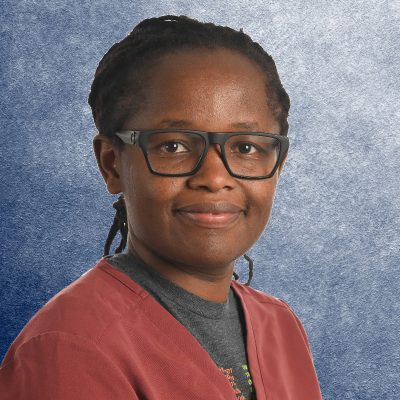
Judy Wawira Gichoya, MD, MS (X "formerly Twitter": @judywawira) Associate Professor, Department of Radiology, Emory University School of Medicine
Dr. Gichoya is an associate professor at Emory university in Interventional Radiology and Informatics leading the HITI (Healthcare AI Innovation and Translational Informatics) lab. Her work is centered around using data science to study health equity. Her group works in 4 areas - building diverse datasets for machine learning (for example the Emory Breast dataset); evaluating AI for bias and fairness; validating AI in the real world setting and training the next generation of data scientists (both clinical and technical students) through hive learning and village mentoring. She serves as the program director for radiology: AI trainee editorial board and the medical students machine learning elective. She has mentored over 60 students across the world (now successful faculty, post doc, PHD and industry employees) from several institutions around the world.
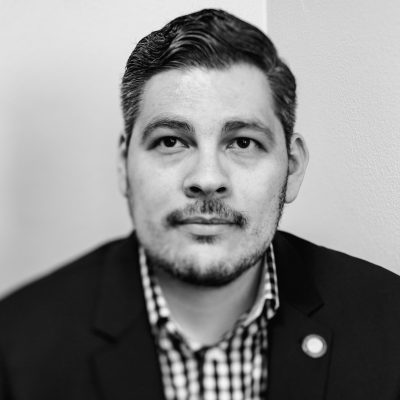 Stephen Aguilar, PhD, Assistant Professor, Rossier School of Education, University of Southern California
Stephen Aguilar, PhD, Assistant Professor, Rossier School of Education, University of Southern California
Dr. Stephen J. AguiIar is an Assistant Professor of Education at the USC Rossier School of Education. His research focuses on investigating how educational technologies—both emerging and established—influence teaching, learning, and motivation. To this end, Dr. Aguilar explores the impact of learning analytics, generative AI in educational settings, the digital equity gap, and gameful approaches to teaching and learning. Currently, he is co-leading USC’s new Center for Generative AI and Society’s efforts to understand when and how generative AI is used by students and instructors in post-secondary settings.
 Joshua August (Gus) Skorberg, PhD, Associate Professor, Department of Philosophy, University of Guelph
Joshua August (Gus) Skorberg, PhD, Associate Professor, Department of Philosophy, University of Guelph
Joshua August (Gus) Skorburg is Associate Professor of Philosophy, Academic Co-Director of the Centre for Advancing Responsible and Ethical Artificial Intelligence (CARE-AI), and Faculty Affiliate at the One Health Institute at the University of Guelph in Ontario, Canada. From 2018-2022 he was Adjunct Professor in the Fuqua School of Business at Duke University. He received his PhD in Philosophy in 2017 from the University of Oregon. His research spans topics in applied ethics and moral psychology.
1:30 - 2:10 PM (Midday Keynote)
Midday Keynote: Transforming Big Data into AI Ready Data: From Accelerometers to Nutrition & Obesity Questionnaires
Diana Thomas, PhD Professor, United States Military Academy at Westpoint, Department of Mathematical Sciences
Learn more about Dr. Thomas
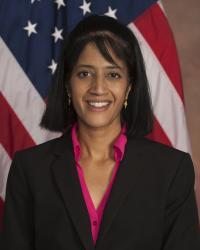
Dr. Thomas has been an active research mathematician for over 30 years with a focus on nutrition and obesity related modeling. She has worked with large complex and high dimensional datasets and co-invented the remote weight loss program, SmartLoss™, which has been clinically applied world-wide to guide and improve individual patient weight loss adherence through smartphone technology. She is an associate editor for the world’s top ranked journal for original research in nutrition, the American Journal of Clinical Nutrition and co-edits the series “Best (but oft-forgotten) practices”, which consists of methodologic commentaries or statistical tutorials. Dr. Thomas is currently the PI of the Artificial Intelligence, Data Engineering & Machine Learning (AIDE-ML) Center for the Nutrition for Precision Health Consortium which she also served as a co-chair for the Steering Committee. Dr. Thomas holds the 2012 Mathematical Association of American of NJ Distinguished Teaching Award, the 2015 Obesity Society George Bray Founder’s Award, and the 2023 American Mathematical Society Mary P. Dolciani Prize for Excellence in Research.
2:10 - 3:00 PM (Paper Session)
Paper Discussions
Moderated by Jolaade Kalinowski, PhD Department of Human Development and Family Sciences, University of Connecticut
Chatbot Literacy among U.S. Adolescents: Are They Aware of Potential Health-related Uses? Prathyusha Galinkala, PhD, Michigan State University
Investigating the Impact of an Online Chronic Pain Intervention on Substance Use: Secondary Analysis of a Feasibility Randomized Controlled Trial Erin Reilly, PhD, VA Bedford Healthcare System
Digital cloning of online social networks for language-sensitive agent-based modeling of misinformation spread Prateek Puri, PhD RAND Corporation
Evaluating ChatGPT's Accuracy and Safety in Providing Image-Based Medication Instructions Yusef Yassin, PharmD student, Massachusetts College of Pharmacy and Health Sciences
Day 2, Friday, May 17, 2024
12:00 - 12:05 PM
Welcome
12:05 - 12:45 PM
Opening Keynote
Innovative Digital Technologies to Improve Adolescent and Young Adult Health
Elizabeth Ozer, PhD, Professor of Pediatrics & Associate Vice Provost, Faculty Equity, Office of Diversity and Outreach at the University of California San Francisco
Jonathan P. Rowe, PhD, Senior Research Scientist and Managing Director of NSF AI Institute for Engaged Learning
Learn more about Dr. Ozer

Elizabeth Ozer, PhD is a Professor of Pediatrics and Associate Vice Provost of Faculty Equity, Office of Diversity and Outreach at UCSF. Dr. Ozer is a psychologist whose research has focused primarily on the health of adolescents, young adults, and women. She has served as Principal Investigator on numerous federal research grants supporting multidimensional interventions to improve adolescent and young adult health through targeting clinicians, adolescents, and health care systems, as well as social determinants of health and disparities in the delivery of health services. For more than a decade, she has focused on ways that technology can be incorporated into successful models of preventive care to increase self-efficacy and promote behavior change. This includes developing and piloting an interactive behavioral/emotional health module for adolescents that can be integrated into health care delivery (AHRQ); designing a computerized personalized behavior change system for adolescent preventive health (focused on reducing substance use) that extends the reach of the clinician (NSF/NCI); and an NIH Science Education Partnership Award to enhance the training and diversity of the biomedical, behavioral, and clinical research network. Dr. Ozer leads the Maternal & Child Health (MCHB) funded Adolescent/Young Adult Health Network with a focus on developing a national transdisciplinary research agenda for adolescent and young adult health and translating research into practice.
Learn more about Dr. Rowe

Jonathan P. Rowe, PhD, is a Senior Research Scientist in the IntelliMedia Group within theDepartment of Computer Science at North Carolina State University, Managing Director of the NSF AI Institute for Engaged Learning, and a member of the Center for Educational Informatics. His work focuses on designing, developing, and evaluating advanced learning technologies, with an emphasis on game-based learning environments, intelligent tutoring systems, multimodal learning analytics, intelligent narrative technologies, affective computing, and user modeling. More broadly, his research is at the intersection of artificial intelligence and human-computer interaction, with applications in education, training, and healthcare. It's principal objective is to understand how computational methods can enable technology-rich learning experiences that are both highly effective and engaging. His research has been recognized with several best paper awards, including best paper at the Seventh International Artificial Intelligence and Interactive Digital Entertainment Conference (AIIDE-2011) and best paper at the Second International Conference on Intelligent Technologies for Interactive Entertainment (INTETAIN-2008). He led development efforts on several game-based learning projects, including Crystal Island: Lost Investigation, which was nominated for Best Serious Game at the 2012 Unity Awards and the 2012 I/ITSEC Serious Games Showcase and Challenge. He served as Program Chair and General Chair for the Annual AAAI Conference on Artificial Intelligence and Interactive Digital Entertainment, and currently serves on the editorial board of the International Journal of Artificial Intelligence in Education.
12:45 - 1:30 PM (Panel)
AI & Bias in Healthcare
Moderated by Megan O'Grady, PhD, Department of Public Health Sciences, University of Connecticut School of Medicine
AI is increasingly being used in healthcare for diagnostics, treatment selection, predicting health risks and treatment outcomes, enhancing physician-patient communication, improving medical training, and more. However, algorithms are only as good as the data used to train them and the assumptions made by the humans who create them. In this panel, three experts on AI and bias in healthcare will discuss how to identify and avoid bias in AI used in healthcare, the implications for health and social inequities, what must be done to prevent AI from exacerbating inequities, and how to use AI as a tool to root out bias in healthcare.
Learn more about our panelists
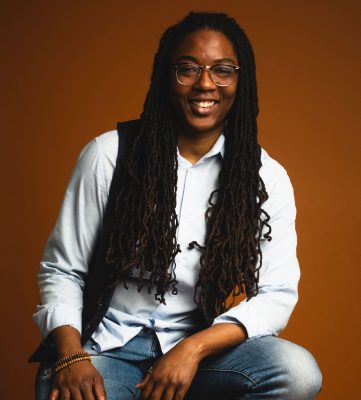
Christina Harrington, PhD Assistant Professor, Human-Computer Interaction Institute, Carnegie Mellon University (LinkedIn: Christina N. Harrington)
Dr. Harrington an Assistant Professor in the HCI Institute at Carnegie Mellon University where she also have a courtesy appointment in the School of Design. She is also the Director of the Equity and Health Innovations Design Research Lab. She is a designer and qualitative researcher focusing on understanding and conceptualizing technology experiences that support health and wellness among older adults and individuals with disabilities. Her research employs design as a catalyst for health equity and socially responsible technology experiences. She explores these concepts through community-based participatory design and co-creation methods. Her work uses culturally tailored design to expand technology access and constructs of empowerment among marginalized communities.

Matthew DeCamp, MD, PhD Associate Professor, University of Colorado Anschutz Medical Campus (LinkedIn: Matthew DeCamp)
Matthew DeCamp, MD, PhD, is an Associate Professor in the Center for Bioethics and Humanities and Division of General Internal Medicine at the University of Colorado. A practicing internist, health services researcher and philosopher, Dr. DeCamp employs both empirical and conceptual methods to identify and solve cutting edge problems at the interface of health care, policy and bioethics. He serves as Director of Research Ethics for the Colorado Clinical and Translational Sciences Institute (CCTSI) and is a member of the Partnership of Academicians and Communities for Translation (PACT) Council of the CCTSI. Dr. DeCamp has two active projects on artificial intelligence in health care: one, as Principal Investigator of an NIH/NINR R01 on the use of AI-based prognostication in palliative care and another as Principal Investigator of a Greenwall Foundation Making a Difference grant examining ethics and chatbots.
 Shiri Dori-Hacohen, PhD Assistant Professor, Department of Computer Science & Engineering, University of Connecticut (Website: https://shiri.dori-hacohen.com/)
Shiri Dori-Hacohen, PhD Assistant Professor, Department of Computer Science & Engineering, University of Connecticut (Website: https://shiri.dori-hacohen.com/)
Prof. Dori-Hacohen is an Assistant Professor at the Department of Computer Science & Engineering at the University of Connecticut, where she leads the Reducing Information Ecosystem Threats (RIET) Lab. She is also the Founder & Chair of the Board at AuCoDe. Prof. Dori-Hacohen’s research focuses on threats to the information ecosystem online and to healthy public discourse from an information retrieval lens, informed by insights from the social sciences. She is a recognized expert in the information ecosystem research area and has published extensively on the topic. Prof. Dori-Hacohen has recently founded the Reducing Information Ecosystem Threats (RIET) Lab, which focuses on controversial topics, misinformation and disinformation and the connections between them, and the ensuing impacts and implications. Her research has been funded by the National Science Foundation and Google, among others. Prof. Dori-Hacohen has served as PI or Co-PI on $7.5M worth of federal funds from the NSF.
1:30 - 2:20 PM (Paper Session)
Paper Discussions
Moderated by Eileen Carter, PhD, University of Connecticut School of Nursing
Development of an Artificial Intelligence Digital Behavior Change Intervention (AI-DBCI) to Promote RSV Vaccination in Adults 60+ Ashley West, PhD Lirio
A Machine Learning Study to Predict Early Substance Use Among Using a Nationally Representative Sample of U.S. Adolescents Gaoqianxue Liu, PhD Yale Child Study Center
Two-Year Follow-Up of Dementia Caregivers after a Digital Health Intervention Alicia Hong, PhD George Mason University
The Sugar-Coated Truth: The Quality of Diabetes Health Information on TikTok Spruhaa Vasistha, PhD Denison University
2:20-3:10 PM (Flash Talk Videos)
Flash Talk Videos
In this session, attendees will be put into breakout groups by topic to watch Flash Talk Videos and engage with the presenters. Don’t miss the stimulating discussions in these small groups which provide an excellent opportunity for networking and building collaborations. Breakout session topics include:
Mental Health Moderated by Kiran Paudel
Physical Activity Moderated by Kamal Gautam
Nutrition and Weight Management Moderated by Jared Goetz
Patient Use of Digital Health and Informatics Moderated by Jolaade Kalinowski, PhD
Social Media Moderated by Christie Idiong, MS
3:10 - 3:50 PM (Closing Keynote)
Write On: Opportunities and Challenges in using Generative AI for Health Intervention Messaging
Saeed Abdullah, PhD Assistant Professor in the College of Information Sciences and Technology at the Pennsylvania State University (website: saeedabdullah.com)
Messaging matters when designing health interventions. Effective interventions for an individual often require personalization and adaptation to their goals and environments. Their needs and preferences can also change over time, motivational stages, and contexts. Manually generating interventions that can address dynamic and personalized needs of individuals can be costly and labor intensive. Generating multimedia messages poses a greater challenge, even though they can be more effective in user engagement. As a result, current approaches often rely on a small set of text messages, which can create a serious barrier in sustaining engagement and supporting health behavior change over time. Generative AI (genAI) can help to address these limitations. In this presentation, I will describe how genAI can be used to cost-effectively provide personalized and context-specific multimedia messages to support health behavior change over a longitudinal period for a diverse population. I will also discuss potential challenges in using genAI to generate these messages, including risks of bias and confabulation. I will then outline how we can mitigate these risks by incorporating a “human-in-the-loop” approach while using genAI for health intervention design.
Learn more about Dr. Abdullah
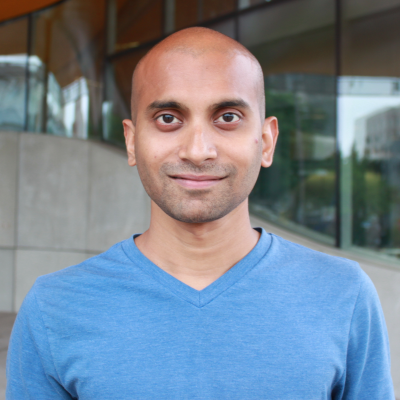
Saeed Abdullah is an assistant professor in the College of Information Sciences and Technology (IST) at Penn State. His research focuses on developing human-centered and data-driven technologies to improve health equity and access. His recent work has led to designing conversational agents to support health needs of diverse communities, including women with metastatic breast cancer and individuals with PTSD. He is currently working on using generative AI for health intervention design and clinician training. He is also exploring how to create supportive financial technologies for marginalized communities, including individuals with bipolar disorder.
His research has been recognized through several accolades, including the IST Junior Faculty Excellence Award in Research and the $100,000 Heritage Open mHealth Challenge award. His publications have received a Best Paper Award (MobileCHI) and an Honorable Mention (CHI). His projects have been supported by multiple grants from the National Science Foundation and the National Institutes of Health.